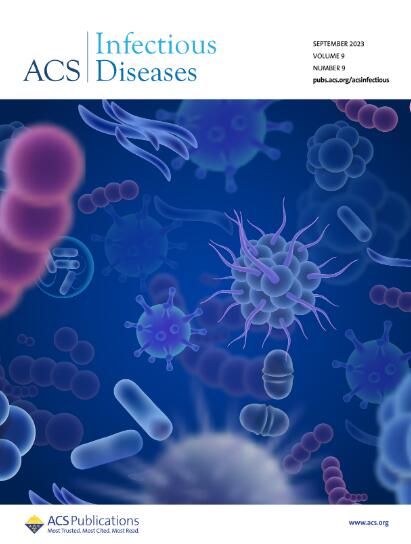Intelligent phase change materials for long-duration thermal energy storage
IF 4
2区 医学
Q2 CHEMISTRY, MEDICINAL
引用次数: 0
Abstract
Conventional phase change materials struggle with long-duration thermal energy storage and controllable latent heat release. In a recent issue of Angewandte Chemie, Chen et al. proposed a new concept of spatiotemporal phase change materials with high supercooling to realize long-duration storage and intelligent release of latent heat, inspiring the design of advanced solar thermal fuels.
用于长时间热能储存的智能相变材料
传统的相变材料难以实现长时间的热能储存和可控的潜热释放。在最近一期的《Angewandte Chemie》杂志上,Chen 等人提出了一种具有高过冷度的时空相变材料的新概念,以实现潜热的长时间储存和智能释放,从而启发了先进太阳能热燃料的设计。
本文章由计算机程序翻译,如有差异,请以英文原文为准。
求助全文
约1分钟内获得全文
求助全文
来源期刊

ACS Infectious Diseases
CHEMISTRY, MEDICINALINFECTIOUS DISEASES&nb-INFECTIOUS DISEASES
CiteScore
9.70
自引率
3.80%
发文量
213
期刊介绍:
ACS Infectious Diseases will be the first journal to highlight chemistry and its role in this multidisciplinary and collaborative research area. The journal will cover a diverse array of topics including, but not limited to:
* Discovery and development of new antimicrobial agents — identified through target- or phenotypic-based approaches as well as compounds that induce synergy with antimicrobials.
* Characterization and validation of drug target or pathways — use of single target and genome-wide knockdown and knockouts, biochemical studies, structural biology, new technologies to facilitate characterization and prioritization of potential drug targets.
* Mechanism of drug resistance — fundamental research that advances our understanding of resistance; strategies to prevent resistance.
* Mechanisms of action — use of genetic, metabolomic, and activity- and affinity-based protein profiling to elucidate the mechanism of action of clinical and experimental antimicrobial agents.
* Host-pathogen interactions — tools for studying host-pathogen interactions, cellular biochemistry of hosts and pathogens, and molecular interactions of pathogens with host microbiota.
* Small molecule vaccine adjuvants for infectious disease.
* Viral and bacterial biochemistry and molecular biology.
 求助内容:
求助内容: 应助结果提醒方式:
应助结果提醒方式:


